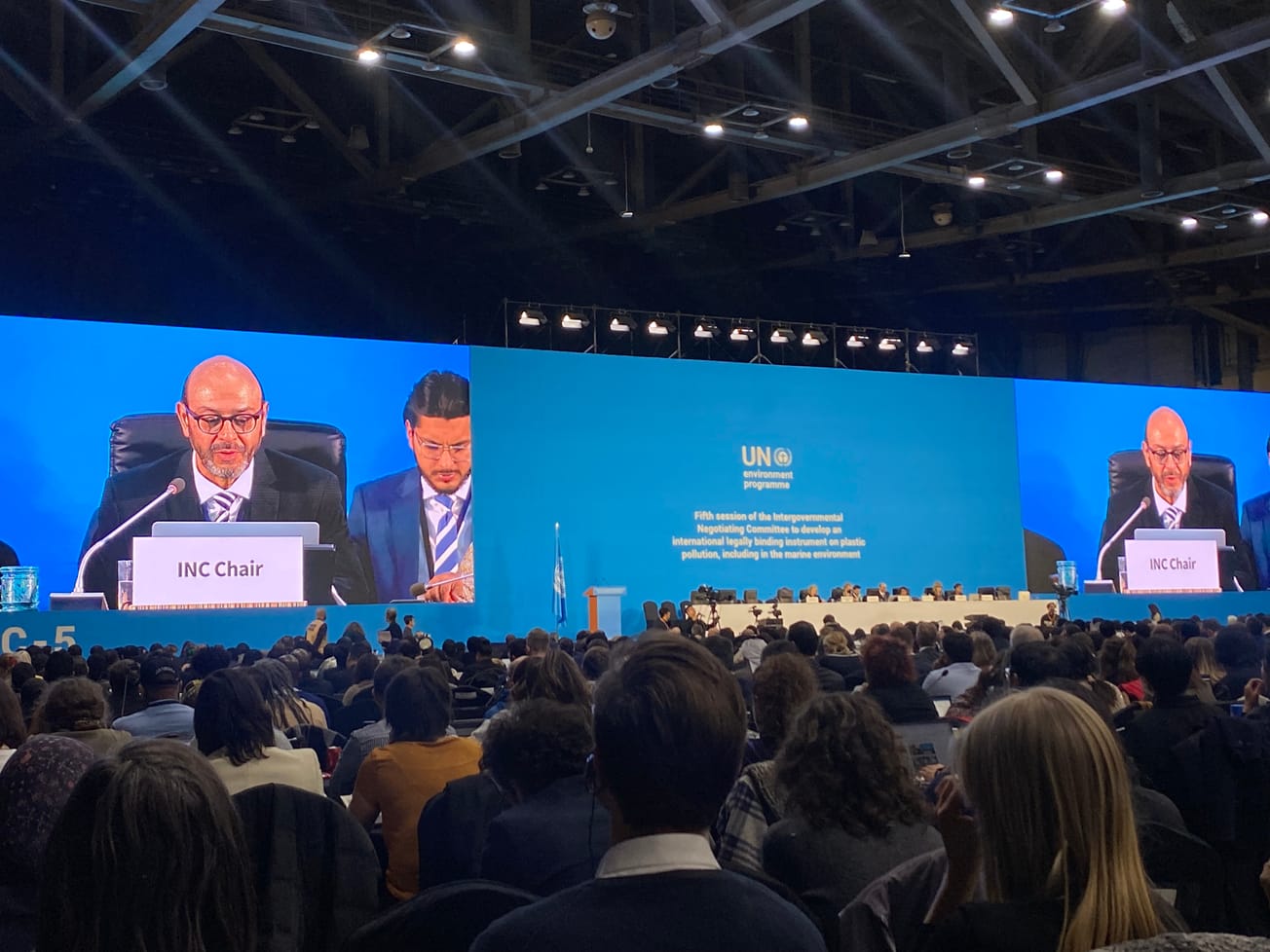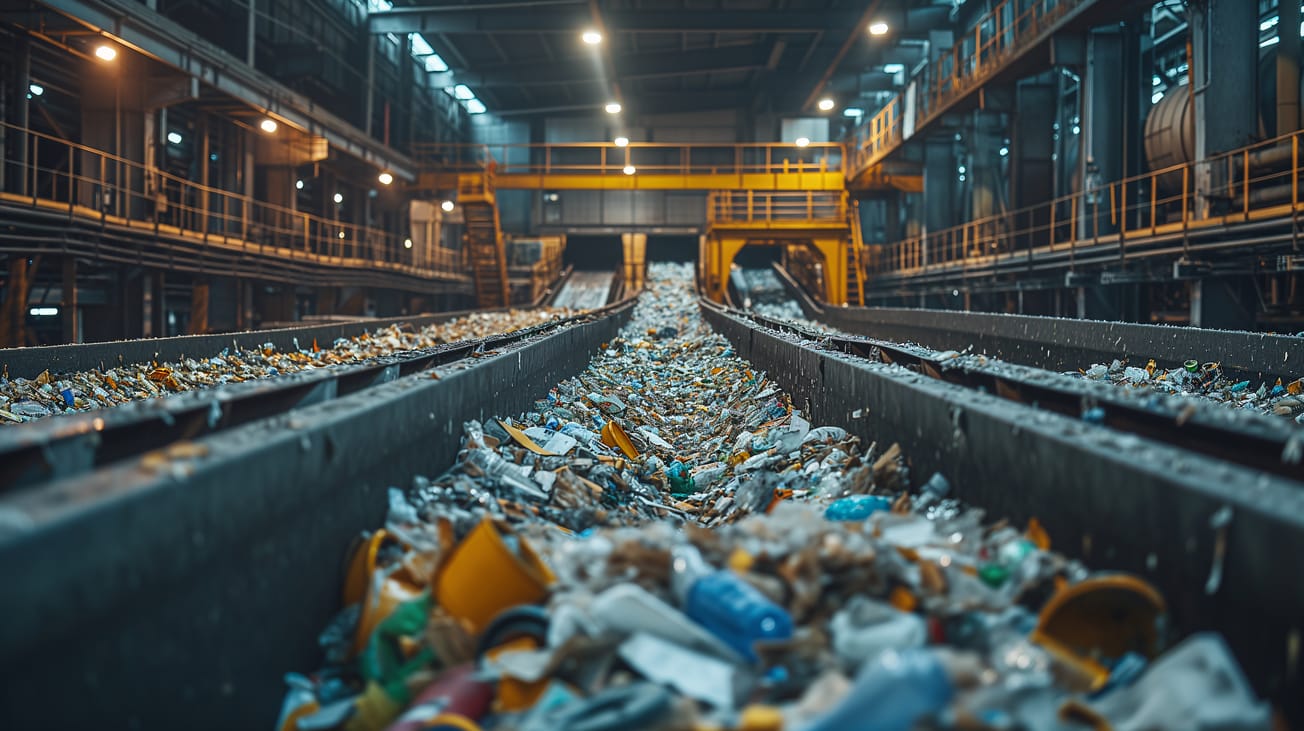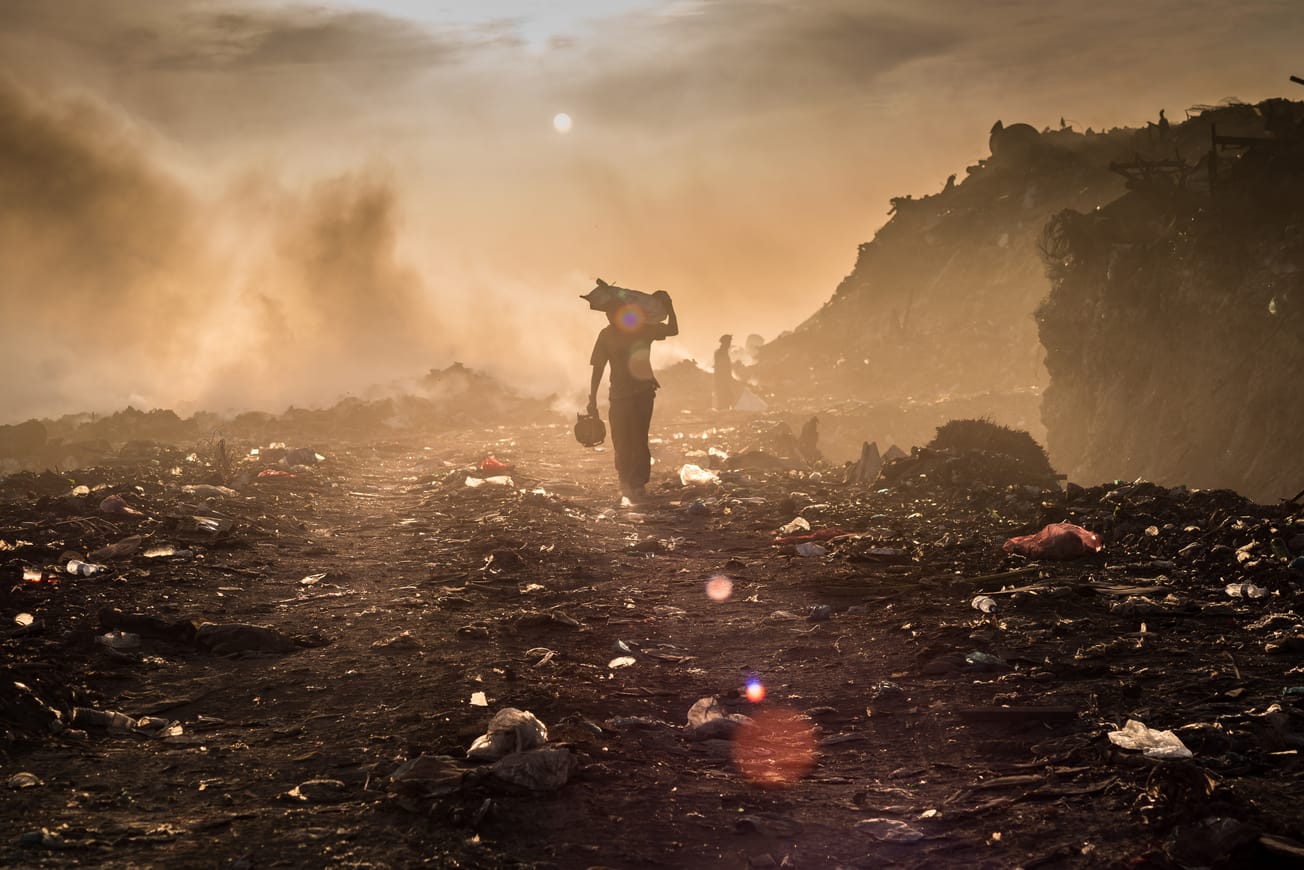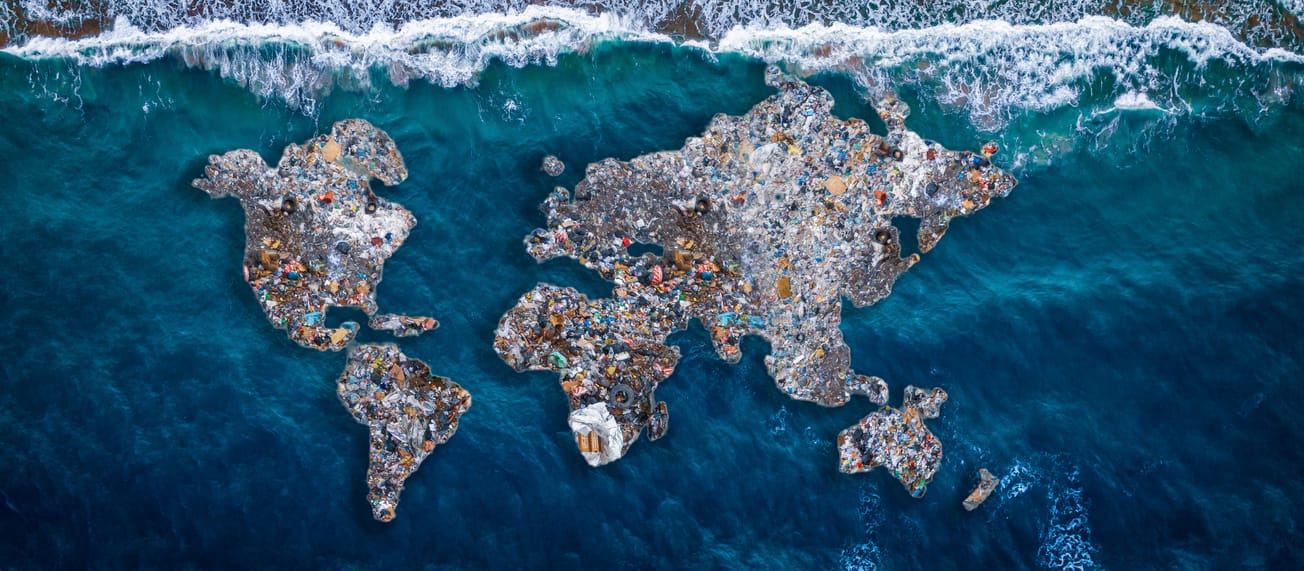On Tuesday, June 14, 2023, the Ministers and High-Level Representatives of 11 African countries signed the Moroni Declaration for Ocean and Climate Action in Africa at the end of the Blue Future Ministerial Conference on The Blue Economy and Climate Action in Africa: Island States and Coastal at the Forefront. After four years of consultations, advocacy and collaboration, consensus has finally been reached on a Declaration that recognises the specificities of African Island States and supports the Great Blue Wall initiative. The Great Blue Wall initiative is recognised as a flagship, transformative, and collective approach to foster resilience, mitigation and adaptation to climate change and as leverage for a sustainable Blue Economy in Africa.
What is in the Declaration, what could it do, and what happens next?
When action meets ambition
This consensus is a remarkable achievement for regional cooperation and the historical development of the African Ocean and Climate Action policy framework that will fill gaps in the African Union Agenda 2063 and UN Agenda 2030. The Declaration will kick-start mechanisms to enhance ocean conservation, climate action, and the sustainable development of coastal communities. In turn, this will resolve a longstanding gap in recognising the specificities of African Island States and their integration in continental and regional policies, strategies and frameworks. The Declaration will also strengthen capacity building and technology transfer, enabling all States to take part in the management of this vast blue commons.
The Declaration imposes a political commitment to ensure ocean conservation, climate action, and the sustainable development of coastal communities by recognising the inherent value of biodiversity, and calling for Parties to “act as stewards of the ocean”. Together, this provides a strong basis and renewed impetus for the protection of African ocean biodiversity.
The Declaration enables the implementation of the Great Blue Wall initiative, an IUCN initiative that aims to unlock unprecedented nature-based recovery efforts by establishing a transformational movement. Its goal is to dramatically accelerate and upscale ocean conservation actions while enhancing socio-ecological resilience and the development of a regenerative blue economy by catalysing political leadership and financial support.
Parties will submit proposals, which will be assessed by a Scientific and Technical Body (STB). The Conference of Ministers (COM) will then decide whether to adopt the proposal, ideally by consensus but with the possibility of a ¾ majority vote. An opt-out procedure was reluctantly included, allowing a Party to justify derogating from the majority-approved measure.
Similarly, the Declaration aims to promote cooperation and coordination. As part of this, negotiators had to make sure it will “not undermine” the diverse range of instruments, frameworks and bodies (IFBs) that already have a mandate on ocean conservation, climate action, and the sustainable development of coastal communities.
The COM will conduct consultations and make recommendations. At the same time, Parties to the Declaration must consider and promote ocean conservation, climate action, and the sustainable development of coastal communities in the decision-making processes of other IFBs. Future COM meetings will no doubt have to wrangle with thorny questions regarding the precise mandates of other IFBs and the extent to which proposed conservation and management measures are coherent with existing designations.
Also of interest is that the COM may also develop a mechanism for recognising existing measures adopted in other forums. For example, a historic agreement on the conservation and sustainable use of marine biodiversity of areas beyond national jurisdiction that was reached on March 19th 2023, after more than 15 years of discussions.
Challenges and opportunities
The Moroni Declaration is not without its challenges. Some Parties expressed reservations about some aspects of the Declaration, such as the opt-out procedure, the voting mechanism, or the recognition of African Island States' specificities. Some IFBs may also perceive the Declaration as an interference or a threat to their authority or interests. Some stakeholders may also question the feasibility or effectiveness of measures or targets proposed by the Declaration or the Great Blue Wall initiative.
These challenges, however, should be within the Declaration's opportunities for advancing ocean conservation, climate action, and the sustainable development of African coastal communities. The Declaration is a unique platform for dialogue, collaboration, and innovation among diverse actors, including governments, regional organisations, civil society, the private sector, academia, and donors.
The Declaration is also a powerful tool for mobilising resources, raising awareness, and building capacity to implement the Great Blue Wall and other related initiatives. It is indeed a strategic instrument for aligning the African agenda with the global agenda, especially given relevant mechanisms for the African continent where ocean issues are expected to feature prominently, including the African Climate Action Summit in Nairobi, Kenya, in September 2023. The Summit will showcase African leadership and solutions on climate change and biodiversity, and mobilise political will and resources for the implementation of the Paris Agreement and the post-2020 Global Biodiversity Framework.
Relevance and alignment with relevant mechanisms
The Moroni Declaration is not only relevant for the African continent but also for the global community. The Declaration aligns with and supports several existing mechanisms and efforts in Africa and globally, such as:
- The Samoa Pathway, the outcome document of the Third International Conference on Small Island Developing States (SIDS) held in Samoa in 2014, reaffirms the particular case of SIDS for sustainable development and calls for enhanced cooperation and partnerships to address their vulnerabilities and challenges.
- The Ocean Decade, the United Nations Decade of Ocean Science for Sustainable Development (2021-2030), aims to provide a common framework to ensure that ocean science can fully support countries in creating improved conditions for the sustainable development of the ocean.
- The COP28, the 28th session of the Conference of the Parties to the United Nations Framework Convention on Climate Change (UNFCCC), will be held in Abu Dhabi, United Arab Emirates, in November 2023 and will review the progress and ambition of the Parties in addressing climate change and its impacts.
By aligning with these mechanisms and efforts, the Moroni Declaration demonstrates the commitment and contribution of African countries to advancing ocean conservation, climate action, and the sustainable development of coastal communities at all levels. It also creates opportunities for synergies, coherence, and mutual support among different initiatives and stakeholders.
Implications and roles
The Moroni Declaration has significant implications for stakeholders, including research institutions, government agencies, communities, etc. It also assigns different roles and responsibilities for them in implementing the content of the Declaration. For example, research institutions are expected to provide scientific and technical inputs and advice for the development and implementation of the Great Blue Wall initiative and other related measures, as well as to conduct research and monitoring on the status and trends of ocean biodiversity, climate change, and coastal zones in Africa.
Government agencies are expected to coordinate and collaborate with other stakeholders at national, regional, and continental scales to ensure the effective implementation of the Declaration and the Great Blue Wall initiative, as well as to integrate ocean conservation, climate action, and sustainable development of coastal communities into their policies, plans, and programmes. Communities are expected to participate in and benefit from the implementation of the Declaration and the Great Blue Wall initiative and share their knowledge, experiences, and best practices on ocean conservation, climate action, and the sustainable development of coastal communities.
Other stakeholders, such as civil society, the private sector, academia, donors, and media, are expected to support and complement the implementation of the Declaration and the Great Blue Wall initiative, as well as to raise awareness, advocate, and engage with different audiences on ocean conservation, climate action, and the sustainable development of coastal communities in Africa.
Conclusion
The Moroni Declaration is a game-changer for ocean conservation, climate action, and the sustainable development of African coastal communities. It is a testament to the vision, leadership, and commitment of the African countries that signed it. It is also a call to action for all stakeholders to join forces and support the implementation of the Declaration and the Great Blue Wall initiative.
The Declaration, however, is not an end in itself but a means to an end. Its effectiveness and impact will depend on how well it is implemented and monitored, how well it aligns and synergises with other existing mechanisms and efforts, and how well it responds to the evolving challenges and opportunities in the ocean domain. The Declaration also requires continuous political support and financial resources to ensure sustainability and scalability.
The next steps for the Declaration are to finalise its text and annexes, to ratify it by the signatory countries, and to operationalise its provisions and mechanisms. The Declaration must also be widely disseminated to raise awareness and mobilise support among stakeholders and audiences. The Declaration also needs to be linked and aligned with other relevant processes and events, such as the African Climate Action Summit in September 2023, where a possible Heads of State and Government declaration informed by the Moroni Declaration will be proposed, and the COP28 in November 2023 in Abu Dhabi, United Arab Emirates, where a high-level event on the Declaration and the Great Blue Wall initiative will be held.
The Moroni Declaration is a historic milestone and a catalyst for transformational change and a blueprint for a nature-positive world. It is up to us to make it happen.
Author: Ibukun Adewumi, Sustainable Development Reform Hub







